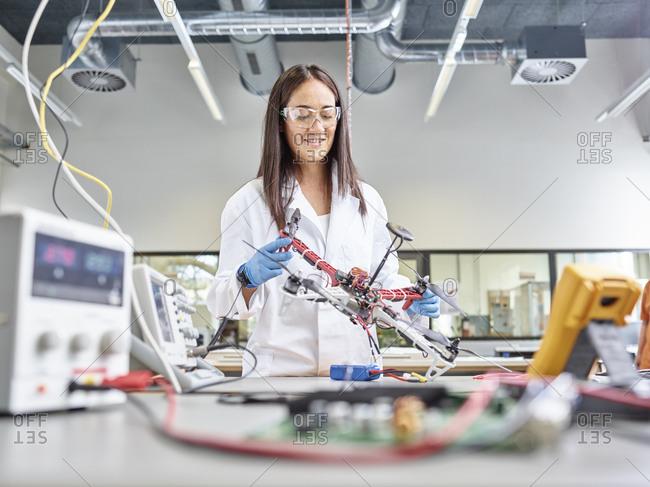In today’s rapidly evolving world, the demand for skilled professionals in various technical fields continues to rise. With advancements in technology and the increasing complexity of industries, technical education plays a crucial role in equipping individuals with the necessary knowledge and skills to succeed in the modern workforce. This article will explore the importance of technical education, its benefits, and how it prepares individuals for rewarding careers in the ever-changing global landscape.
1.Understanding Technical Education:
Technical education refers to a specialized form of education that focuses on imparting practical skills and knowledge related to specific industries, trades, or professions. It goes beyond theoretical learning and emphasizes hands-on training, ensuring that learners gain industry-relevant expertise. Technical education programs typically cover a wide range of subjects such as engineering, computer science, healthcare, construction, automotive, and many more.
2.The Relevance of Technical Education in the 21st Century:
In today’s digital age, technical education has become more critical than ever. With rapid advancements in technology, automation, and artificial intelligence, the job market is undergoing significant transformations. Traditional roles are evolving, while new job opportunities are emerging in innovative fields. Technical education equips individuals with the skills and knowledge needed to adapt to these changes and stay ahead in a competitive job market.
3.Bridging the Gap Industry Academia Collaboration:
Effective collaboration between industries and educational institutions is vital to bridge the gap between classroom learning and industry requirements. This collaboration can take various forms, including industry-sponsored research projects, guest lectures by industry experts, internships, and apprenticeship programs. By involving industry professionals in curriculum development and providing students with exposure to real-world scenarios, technical education programs can produce graduates who are well-prepared for the demands of the workforce.
4.Technical Education and Economic Growth:
Technical education plays a crucial role in driving economic growth at both individual and national levels. By producing a skilled workforce, technical education programs contribute to the development of industries, promote innovation, and attract investment. Additionally, countries with a strong focus on technical education are better positioned to address technological challenges, adapt to global changes, and enhance their competitiveness on a global scale.
5.Overcoming Challenges in Technical Education:
Despite its numerous advantages, technical education faces certain challenges that need to be addressed:
Perception: There is a need to change the perception that technical education is inferior to academic education. Both forms of education are valuable and cater to different career paths.
Gender Imbalance: Encouraging more women to pursue technical education is essential for creating a diverse and inclusive workforce. Efforts should be made to promote gender equality in technical fields.
Infrastructure and Resources: Ensuring that technical education institutions have access to adequate infrastructure, modern equipment, and qualified faculty is crucial for delivering high-quality education.
6.Expanding Access to Technical Education:
To ensure that technical education is accessible to all, governments and educational institutions need to take proactive measures such as:
Scholarship Programs: Providing scholarships and financial aid can make technical education more affordable and accessible to students from underprivileged backgrounds.
Outreach Programs: Conducting awareness campaigns and outreach programs to promote technical education among school students can spark interest and encourage enrollment in technical courses.
Flexible Learning Options: Offering online and part-time courses can enable individuals who are already employed or have other commitments to pursue technical education without disrupting their schedules.
7.The Future of Technical Education:
As technology continues to advance, the future of technical education looks promising. The integration of emerging technologies like artificial intelligence, augmented reality, and data analytics into technical education programs will revolutionize the learning experience. Technical education will continue to evolve to meet the demands of the future workforce, equipping individuals with the skills needed to excel in the digital age.
8.Conclusion:
Technical education plays a pivotal role in shaping the future workforce and driving economic growth. By providing practical skills, industry-relevant knowledge, and hands-on experience, technical education prepares individuals for rewarding careers in various technical fields. It is essential to promote technical education, address its challenges, and ensure its accessibility to all individuals seeking to acquire specialized skills in today’s rapidly evolving world.
